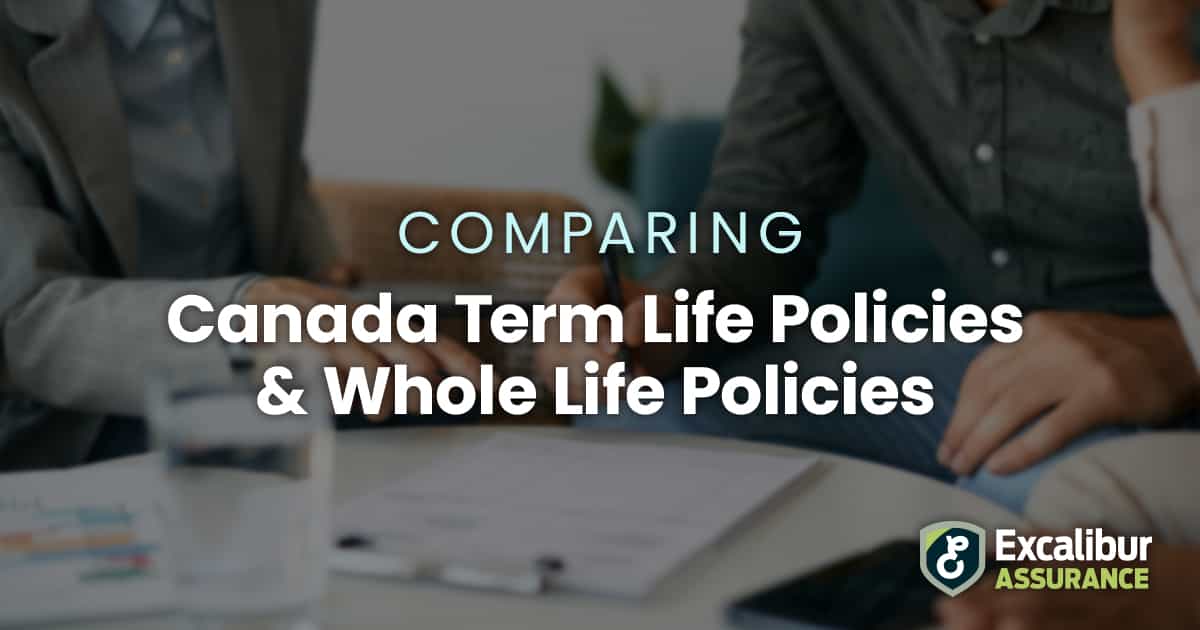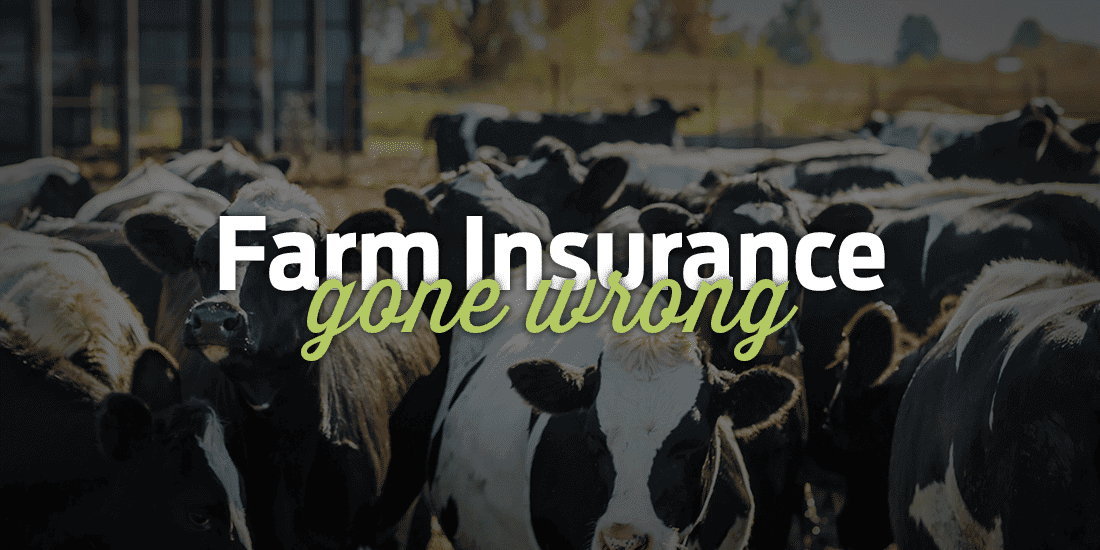
Comparing Canada Term Life Policies & Whole Life Policies
June 15, 2023
Share:
It’s relatively common knowledge that most Canadians will need to invest in life insurance at some point, if not some other means of financial planning for the future (and the future of their dependents.) According to a survey by Ipsos-Reid, 70% of Canadians have life insurance. However, too few Canadians are actually informed on the ins and outs of life insurance. Too few of us are aware of what the difference between term and whole life insurance is, how the two options compare, and why rates can be so different from different life insurance companies.
Excalibur Assurance, a division of Excalibur Insurance, specializes in selling life insurance, critical illness insurance, and disability insurance, and is happy to help our customers find the best coverage plan suited to their needs – whatever those may be. Let’s answer all the most commonly asked questions that Canadians have about their life insurance coverage, to destroy any and all misconceptions surrounding these policies and help you feel more confident about your investments.
First, let’s take a look at how term and whole life policies differ.
What is the difference between term and whole life insurance policies?
When you buy auto insurance, you’re purchasing just that – auto insurance. You want to buy as much as you need to comply with provincial regulations and then some to ensure your car is protected, but there’s not really any “separate” options for auto insurance.
With buying life insurance for the first time, you’ll have the opportunity to choose from a term life policy, a whole life policy, permanent, universal – etc. These policies roughly cover the same thing, but they operate differently, have different costs, and may offer different benefits. Ultimately, what you should choose is based upon your current financial health, your goals, and your dependents.
What is term life?
Term life is the most commonly purchased form of life insurance in Canada and can be purchased to cover the insured for a period (or term) of 10, 20, or even 30 years. This policy has great coverage for typically very affordable monthly installments and is designed to cover the insured during the term. Coverage expires and benefits are cancelled if the policy ends and the insured is still alive. Term vs permanent life insurance is a common debate, but either are good depending on your individual needs, budget, and investment goals.
Term life policies are typically purchased with a specific end goal in mind – i.e., you might purchase coverage to have insurance until your dependents are fully independent, or you might purchase coverage to last until your mortgage has been paid off. Term policies are great for providing coverage for these specific items and many policies have the opting of converting to more permanent policies or increasing the year limit if situations change.
What is whole life?
Whole life insurance is one form of permanent life insurance that is designed to cover the insured for life, so long as premiums continue to be paid. However long you live, as long as the policy is still being paid for, your beneficiaries would receive the benefit upon your death. The one great benefit of whole life is that the premiums are locked in for the entirety of your life, so you won’t have to worry about any increases or changes – even if your health status changes with time.
The same applies for whole life as it does term: the younger that you buy, the cheaper your policy will end up being.
Whole life serves two purposes. While you are still working, whole life can protect your family by replacing your current income. Upon your retirement, this benefit allows you to provide a tax-free inheritance for your loved ones and/or favourite charity. You can use this to pay for your children’s education, funeral expenses, and more.
In addition, whole life is a way to save for the future. Any premiums you pay towards the policy are invested. This income then generates a cash value, which is accessible in the future and can be used to supplement your retirement or pay remaining expenses. Term policies do not have a cash value and once the policy has terminated, the policy does not provide any payout if the insured is alive.
Which is better?
Neither policy is “better” than the other. Both are valid options, but for some people’s situation, one might be more ideal than the other. If you have dependents who will be reliant on you for their whole lives, whole life might be better. If you only need coverage to pay off your debts or to replace your income until your children are financially independent, term life might be better.
If you still aren’t sure, work with an Excalibur Assurance representative for advice based on your own needs.
Why do life policies cost different amounts from different insurers?
Every insurance company has significant differences in how it does its underwriting. Premiums are based upon your current age, the length of your policy, type of policy, existing health conditions, lifestyle factors, and more – but every insurance company may weigh each of those factors differently. This is why it’s important to do a comparison and get quotes from multiple carriers to see which option is best for your circumstances. One company might be a better fit for you than another. It all depends on your situation and what your current needs are.
Some six in ten Canadians are worried about their financial future, says a TD survey. Save yourself from spiraling and get covered with the right life insurance fit.
Excalibur Assurance works with leading carriers in Canada to do the heavy lifting on your behalf and find you the most affordable policy for your needs. Some of the best options can’t be found by a Google search alone. We use our access to find you what you need on your behalf for less.
Get a free quote or give us a call to discuss today.






